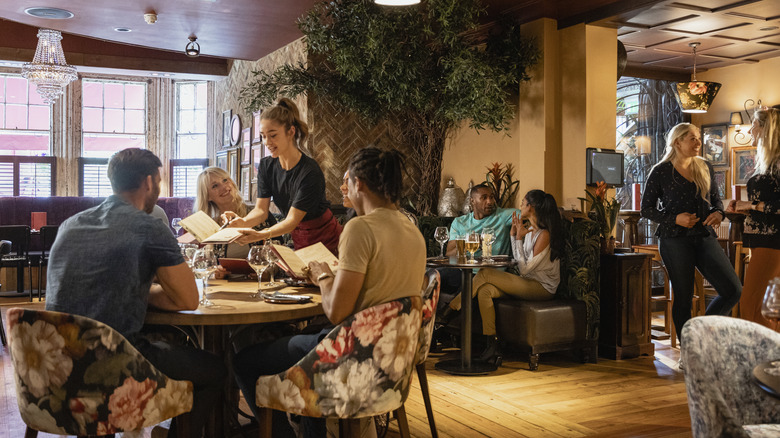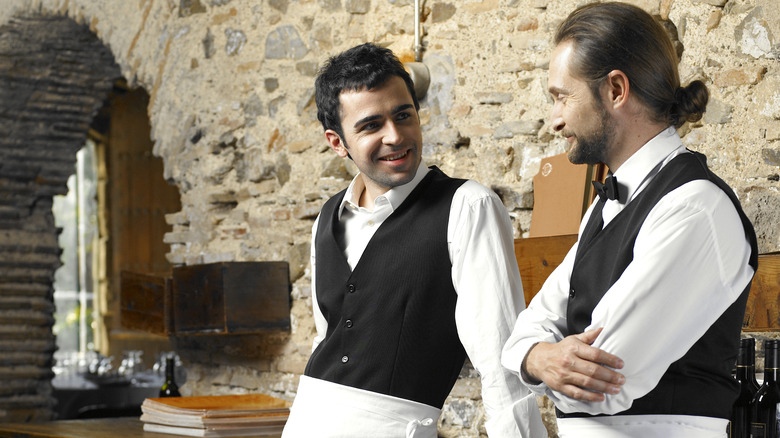Maître D' Michael Cecchi-Azzolina Talks Restaurant Code Words 101 - Exclusive
While most restaurants are not CIA hangouts, any restaurant worth its salt and pepper takes code words seriously. Like snowflakes, no two restaurants have the same secret tongue — where's the fun in that? The New York Times once compiled a list of their favorites. At Union Square Café, a L.O.L. beside your name on the reservation list guarantees you lots of love. At Seersucker — before it was closed — L.T.T. was a slightly more ominous designation: likes to tweet.
Smile if you must, but restaurant code words aren't actually a laughing matter. In fact, according to longtime NYC maître d' Michael Cecchi-Azzolina, they're essential to the survival of the establishment. As he exclusively explained to Tasting Table, "[The] margin is small. It's a really, really tough business, and it's a fickle business. Especially in New York City, restaurants are opening constantly. ... So many close. They just don't last. So you need these [code words] to stay on top of your game."
The two situations restaurants always have code words for
As you might imagine, restaurant code words allow staff to communicate without having to openly explain their meaning, which might ruin the experience for guests or otherwise make things awkward. But codes aren't just used to designate notes about customers — they're also an easy way to pass around vital information quickly. Rest assured, a visit from the health department always merits a code word.
"You don't want them to know that you're alerting the whole restaurant," Michael Cecchi-Azzolina dished to Tasting Table. "There's a phrase [for] when the Department of Health comes in: 'When in doubt, throw it out,'" the maître d' elaborated. "A lot of food gets thrown out when the health inspector arrives because you just can't meet the standards. It's like not you're going to kill someone; if the temperature's supposed to be 42 degrees and it's 40, it's not a big deal. But a thermometer goes in, and that [could be] $300, $500, $1,000." What words might designate a visit from the health department? Cecchi-Azzolina cops to having used "tsunami," "chicken liver," and "clay."
Critics, Cecchi-Azzolina said, get the same code word treatment — for similar reasons. "You want everyone to know that this is a big moment for us [because it could] cost us a lot of money, either in a bad review or a bad health inspection."
Michael Cecchi-Azzolina's book, "Your Table Is Ready: Tales of a New York City Maître D'," is available for purchase from Macmillan.

